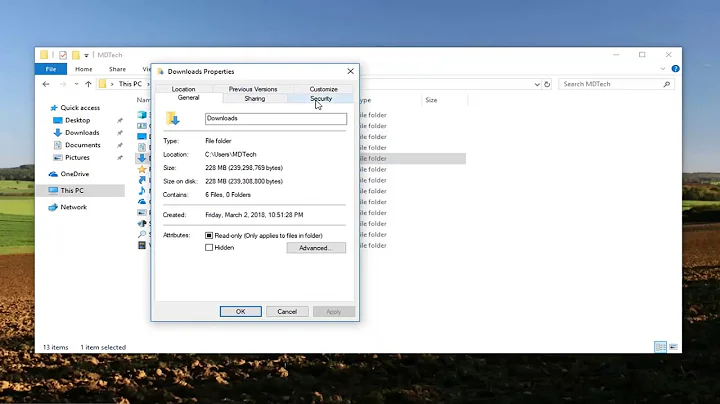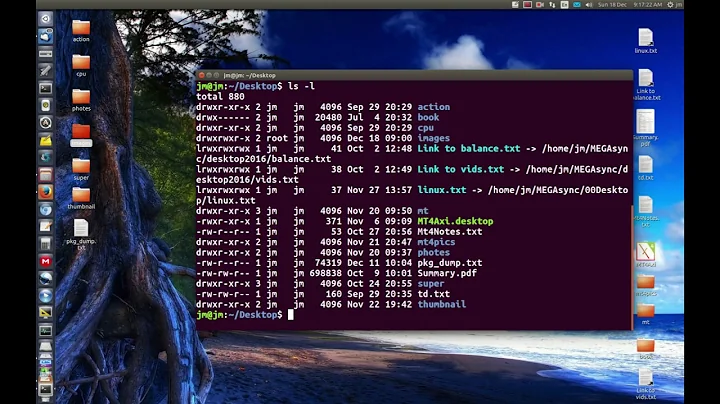Can I change the ownership of all the files of a specific user?
Solution 1
Use the find command with the -user option. Something like:
find / -user john
will eventually turn up all files owned by user "john".
If you want to change their ownership (I would run the find without execution to make sure you have the list you want), then something like:
find / -user john -exec chown harry {} \;
will do it.
Solution 2
This is late, but today I stumbled across this question
because my rsync doesn't have the --usermap option.
My chown (v. chown (GNU coreutils) 8.13) offers a built-in recurse (-R) and a --from option so your (and my) problem could've also been solved using
chown -R --from=john harry /
More specifically I'm migrating a server from OpenSuse to debian, and the user and group of apache2 differ between the distributions. In OpenSuse its user
wwwrun (id:30) and group www (id:8), in debian www-data (id: 33) for both.
After I copied the files using
rsync -az /path/to/files me@debian:/path/to/
I used
chown -R --from=30 33 /path/to/files/
chown -R --from=:8 :33 /path/to/files/
on the target (debian) machine.
Note: rsync version 3.1.0 protocol version 31 has the above mentioned --usermap so if I had that I could've done all three steps with one command on the source machine:
rsync -az --usermap=30:33 --groupmap=8:33 /path/to/files root@debian:/path/to/
Related videos on Youtube
john
Updated on September 18, 2022Comments
-
john over 1 year
Is there a way to recursively find all files owned by a user and change them to another user/group in Gnu/Linux?
I assume there must be some magic one liner but my command line wizardry skills are not up to that :)
Thanks!
-
user222054 almost 10 yearsIt actually wouldn't work for me unless I used the UID. The UID can be found in /etc/passwd
-
Tomasz Gandor over 5 yearsI prefer this one, especially for the option to change group as well. A
find -execone liner for me is a last resort, just before doing things manually. (Also, I hate writing{} \;, but this is personal)




